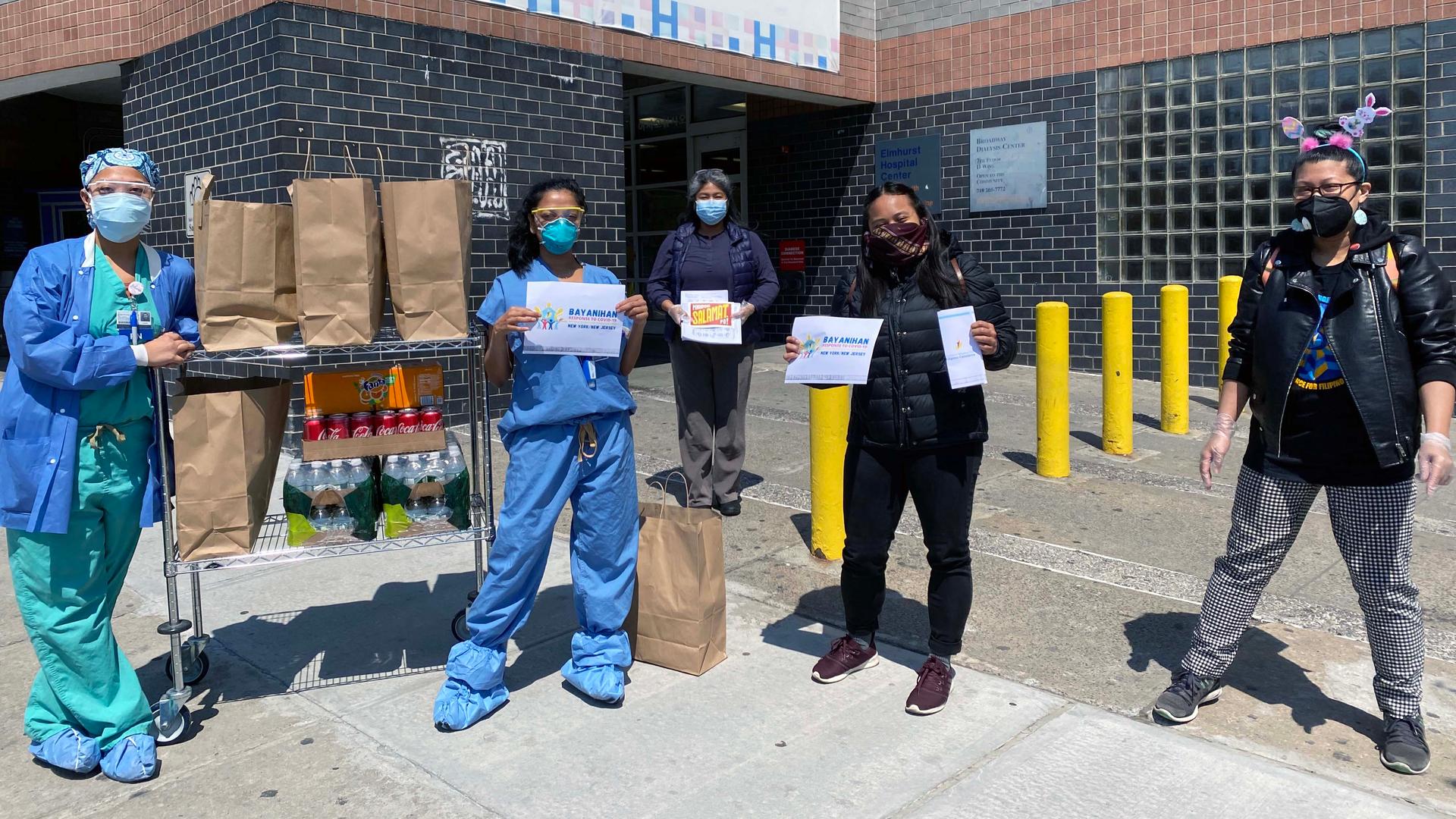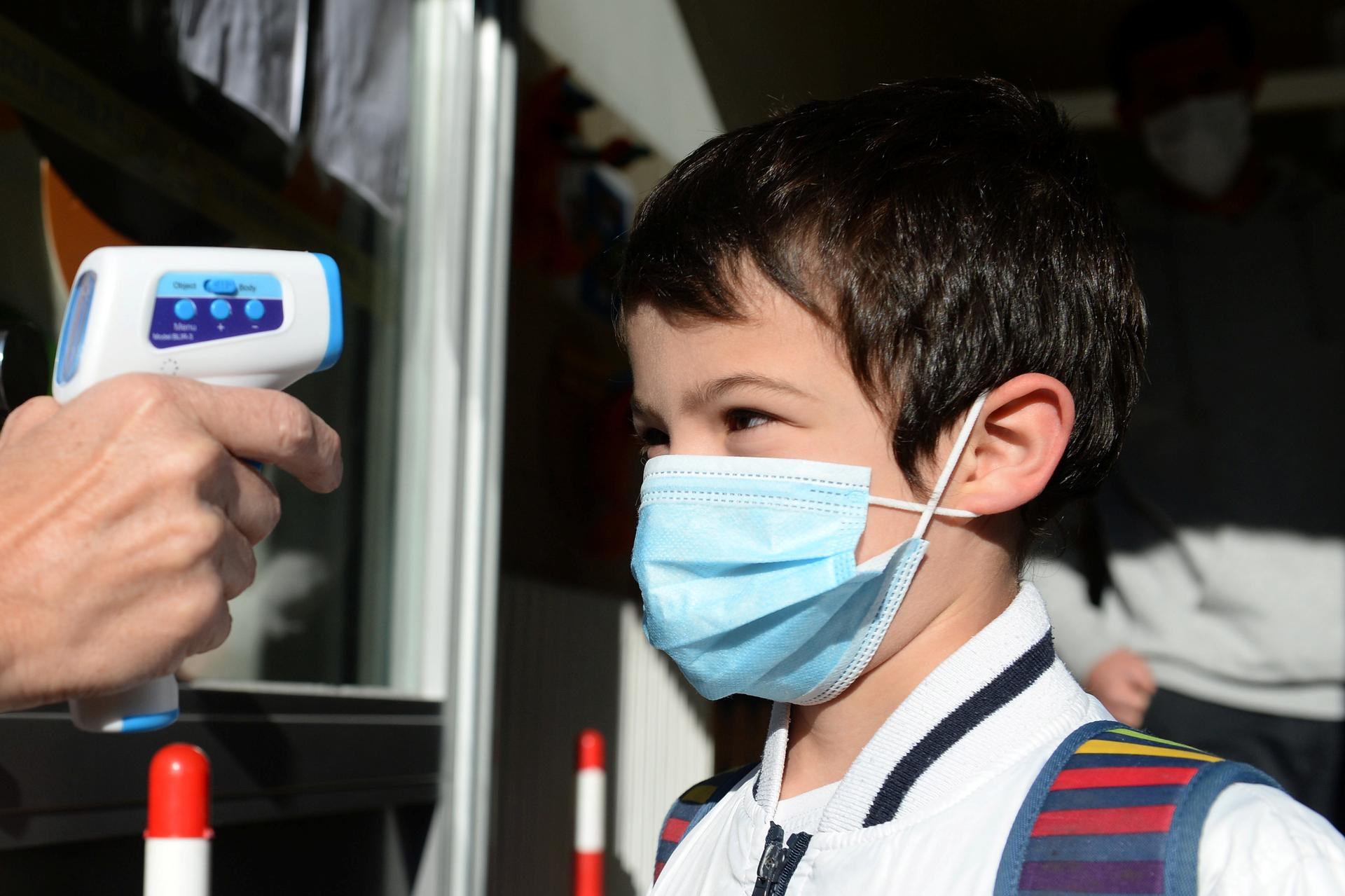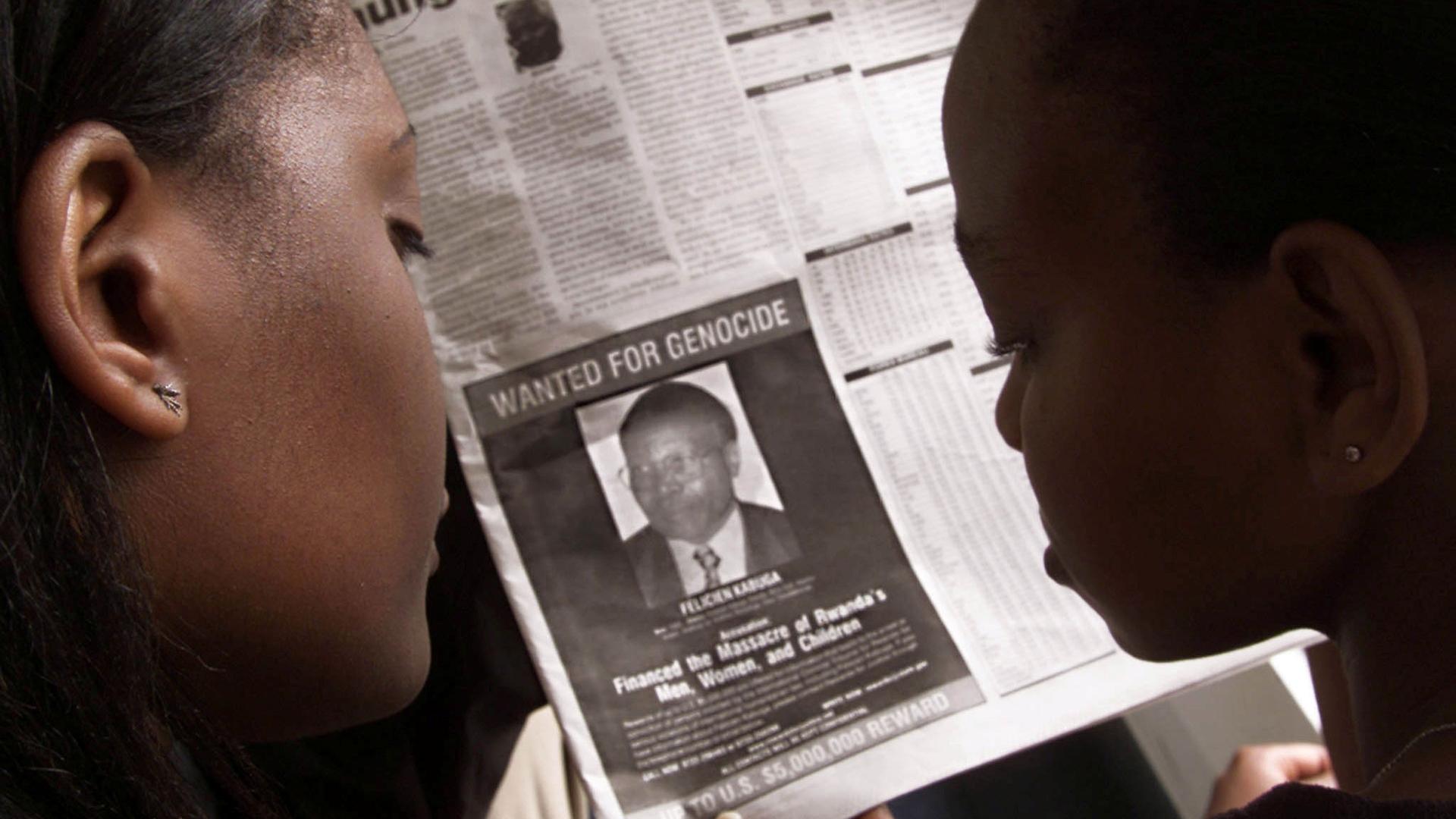Rwandan genocide suspect found after decades; The dangers of ‘vaccine nationalism’; Probe launched after Trump ousts State Dept. watchdog
Readers look at a newspaper June 12, 2002 in Nairobi carrying the photograph of Rwandan Felicien Kabuga wanted by the United States. The United States published a “wanted” photograph in Kenyan newspapers of the businessman accused of helping finance the 1994 killings in Rwanda.
Top of The World — our morning news round up written by editors at The World. Subscribe here.
After more than two decades, one of the most-wanted fugitives indicted for his role in the 1994 Rwandan genocide has been apprehended. Félicien Kabuga, 84, was arrested on the outskirts of Paris on Saturday. He is accused of backing Hutu militias and inciting genocidal violence through hate-filled propaganda that left at least 800,000 ethnic Tutsis and moderate Hutus dead. His arrest and trial could help shed light on the machinations of leaders who orchestrated the killings, and bring some sense of justice 26 years after the genocide.
Will WHO global assembly help pandemic coordination?
Despite efforts to reopen economies, the novel coronavirus pandemic is far from over. The World Health Organization is hosting a virtual global assembly on Monday for heads of state and health experts in an attempt to coordinate an international response to the ongoing pandemic. But while WHO director general hailed the gathering one of the most important in the body’s history, diplomatic tensions — particularly between the US and China — could undermine the work to create an effective global response. The Trump administration continues to spread unproven theories about the spread of the virus.
And: Busted: Pentagon contractors’ report on ‘Wuhan Lab’ origins of virus is bogus
Also: Hospitals in Brazil’s São Paulo ‘near collapse’
The dangers of ‘vaccine nationalism’
Moderna, a Massachusetts biotech company, has shown some positive initial results in a human trial of a vaccine candidate for the novel coronavirus. While a small study showed antibody responses in some healthy volunteers, there is not yet clear evidence that the vaccine would prevent infection.
Some 130 groups worldwide are working to develop a vaccine. But the chair of the Coalition for Epidemic Preparedness Innovations has warned that “vaccine nationalism” — or prioritizing domestic inoculation — could leave the rest of the world suffering. Instead, she argues, there should be global distribution focusing on high-risk recipients, such as health care workers and the elderly.
Also: A study said COVID wasn’t that deadly. The right seized it.
Democrats launch probe after Trump ousts State Dept. watchdog
US President Donald Trump on Friday fired State Department Inspector General Steve Linick, who was investigating Sec. Mike Pompeo‘s alleged misuse of a political appointee to carry out domestic errands, such as picking up dry cleaning and walking his dog. Linick is the fourth government watchdog on Trump’s proverbial chopping block over the last six weeks, leading Democrats to launch a probe into his ouster.
Also: Trump escalates war on government watchdogs
And: Barr’s Flynn dismissal motion portends greater abuses ahead
What history tells us about building climate coalitions
With major economies drawing up enormous economic packages to cushion the shock of the coronavirus pandemic, many investors, politicians and businesses see a unique opportunity to drive a shift toward a low-carbon future.
But meaningful action on climate change will take a lot of political will. Professor Matto Mildenberger speaks with The World’s Marco Werman about whether there is enough to spur actual change.
And: Is 2020 an economic write-off?
What Facebook’s $52M pay out means for international contractors
In a landmark decision that could have implications for content moderators around the world, Facebook has agreed to pay $52 million to compensate some US-based workers for the trauma they endured on the job.
This is the first time a social media company will pay workers who say their mental health suffered as a result of exposure to disturbing content, according to lawyers who represented the content moderators in the lawsuit. The new settlement covers only workers based in the US, but the unprecedented move could have an impact on content moderators in other parts of the world.
Little Manila’s ‘Meal to Heal’ effort brings food to Filipino health workers

People of Filipino descent play an outsize role in the US health care workforce. They’re 1% of the US population, but comprise 7% of health workers. And because so many Filipino Americans are on the front lines of the coronavirus pandemic, it has taken a devastating and outsized toll on their community.
In New York City, a group of Filipinos in the Little Manila neighborhood of Woodside, Queens, is taking care of their own during the pandemic. Their mutual aid initiative, called “Meal to Heal,” is bringing free meals to hospitals and health facilities heavily staffed by Filipinos — while also raising funds to help Filipino restaurants struggling because of the stay-home order.
Morning meme
Fashion faux pas? A South Korean K-league soccer club apologized after it says it mistakenly used sex dolls instead of fashion mannequins to fill stadium seats.
In case you missed it
Listen: Reassessing the effects of the coronavirus on children

For awhile it seemed kids were largely spared by the impacts of the coronavirus. But doctors are beginning to reassess this. In very rare instances, the virus now appears to be associated with an extreme overreaction of the immune system in children, requiring intensive care. The World’s host Marco Werman speaks to Dr. Lorenzo D’Antiga in Bergamo, Italy. Spain has been one of the European countries hit hardest by the coronavirus. But this week, some parts of the Mediterranean country saw a partial easing of the lockdown. Airlines in many of the world’s richest economies are receiving help from their governments to stay in business. That’s not in the case in Latin America. The World’s Jorge Valencia reports on the status of two air carriers in Colombia. And, people of Filipino descent make up 1 percent of the US population, but 7 percent of the health care workforce. In New York City, a group in the Queens neighborhood. known as Little Manila is taking care of their own.
Don’t forget to subscribe to The World’s Latest Edition podcast using your favorite podcast player: RadioPublic, Apple Podcasts, Stitcher, Soundcloud, RSS.
Our coverage reaches millions each week, but only a small fraction of listeners contribute to sustain our program. We still need 224 more people to donate $100 or $10/monthly to unlock our $67,000 match. Will you help us get there today?
